Disadvantages & Problems Of Condensing Boilers: What’s The Downside – Worth Getting?
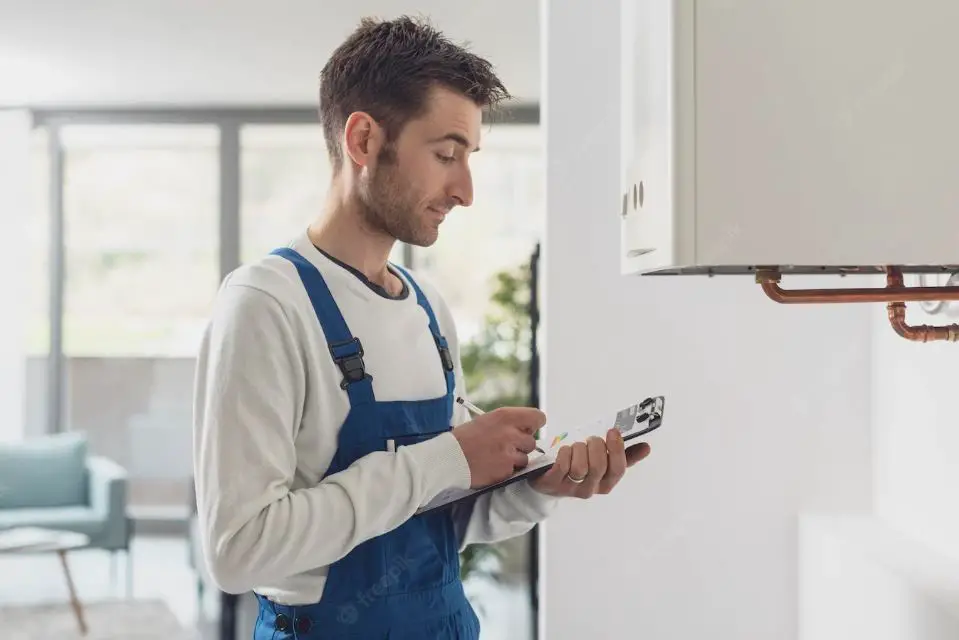
Introduction
Condensing boilers are becoming increasingly common in many regions of the world due to their benefits.
If, like me, you’re interested in a boiler that provides hot water at an economical rate with little environmental impact, then you must have been considering a switch from your regular boiler to a condensing type.
Before you make the change, condensing boilers have certain drawbacks you must evaluate before making a final decision.
This guide will examine the disadvantages, benefits, and types of condensing boilers.
The Role of Condensing Boilers in the Modern World
Condensing boilers are slowly becoming an industry standard due to their excellent energy-saving technology and low gas emissions.
Being able to spend less on energy bills is a huge advantage for users across the globe. The environmental benefits have been a good way for some countries to reduce net emissions.
I recall telling a friend a while back that condensing boilers are a blessing and curse. Quite frankly, this boiler type has advantages that many seem to notice more than disadvantages.
For one, condensing boilers still emit toxic waste even though it’s not as harmful as CO2 emissions. On top of that is the expensive installation and maintenance cost, which many do not know.
How Condensing Boilers Work
Condensing boilers serve a similar function to other boilers — providing hot water.
In addition, condensing boilers recover latent heat that would otherwise be lost or vaporized through the flue by condensing water vapor in exhaust gases.
Every type of gas and oil boiler emits fumes (in the form of steam and vapor) as part of the heat production process.
While other types of boilers lose the fumes into the atmosphere, condensing boilers recycle the generated fumes to reheat.
What To Consider Before Getting One?
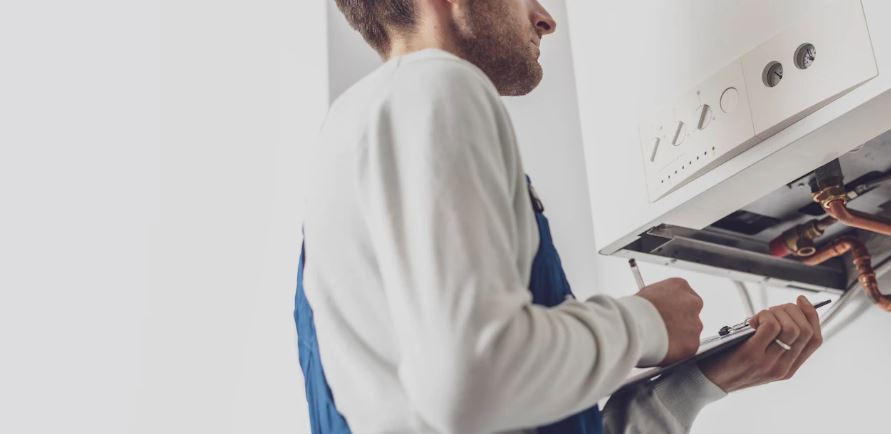
Whether you are getting a condensing boiler as a replacement or a first-time installation, there are factors to consider.
The number one factor is size. The size of your home and the amount of hot water required determines the size of the boiler to install. The type of fuel is also essential when you want to choose a boiler.
Let me break this down.
Natural gas, oil, and liquid petroleum gas (LPG) are standard fuels for boilers. However, some are more efficient than others. Of the three mentioned, LPG is the most efficient and environmentally friendly.
So, look at the most accessible type of fuel based on where you live before you decide to install a boiler.
Disadvantages Of Condensing Boilers
Here are the top drawbacks of condensing boilers.
Higher Upfront Costs
If you install a condensing boiler as a replacement, you’ll spend more as its system differs from most traditional types.
For example, its external pipe must be insulated to prevent freezing during intense cold seasons. True, you will get to save on energy costs, but initial installation is expensive.
Extra Plumbing
A condensing boiler needs a system that requires extra plumbing to dispose of acidic waste properly.
According to the experts, if not correctly disposed of, the acidic waste from condensing boilers can harm the environment even if not as toxic as CO2.
Hence, it’s necessary to let the waste get buried deep into the ground using a pipe.
Costly To Repair & Maintain
Now, if your condensing boiler becomes faulty, you will spend extra on the repair. Due to the complex installation process, including extra plumbing work, condensing boilers incur more repair costs.
And remember that only specific engineers can fix it when faulty, which affects the repair fee.
Not Suitable For Large Homes
The condensing boiler may not be effective for a large home with a constant need for hot water in large volumes. A condensing boiler may not be able to provide hot water at a constant pressure to multiple bathrooms.
So, for large houses, where more than three bathrooms may be used simultaneously, a conventional boiler will be more effective as it has a separate tank to store hot water.
Warming Delay
With a condensing boiler, you may instantly experience a slight delay in getting hot water as it starts to warm up, unlike boilers with a special tank for hot water.
Of course, such a delay doesn’t take long, yet you are not guaranteed instant hot water at the desired temperature.
Requires Constant Energy Source
A traditional boiler with a separate tank holding hot water can function if you run out of gas. The stored hot water will continue to serve you until the fuel is restored.
However, a condensing boiler provides water on demand; hence, you won’t get any hot water without power.
Requires Yearly Servicing
A condensing boiler needs yearly servicing to remain in good condition.
If you are familiar with a regular boiler, you’ll notice that it only needs periodic servicing, which may be every two years or more. As for the condensing boiler, the servicing duration is smaller.
Hard To Find The Best Product
Condensing boilers are not the easiest to find. While new designs are becoming more available, most people have some complaints about them.
Benefits of Condensing Boilers
Some benefits of condensing boilers are;
Less Electricity Consumption
A condensing boiler saves you gas bills as it is very efficient. In addition, as I mentioned, it reuses hot vapor that most conventional boilers will expel as waste.
No Co2 Emissions
Countries embracing and implementing new methods of reducing carbon emissions have made condensing boilers mandatory replacement for faulty boilers and new installation.
The development is due to the low gas emission of condensing boilers.
Comparing Different Types of Boilers
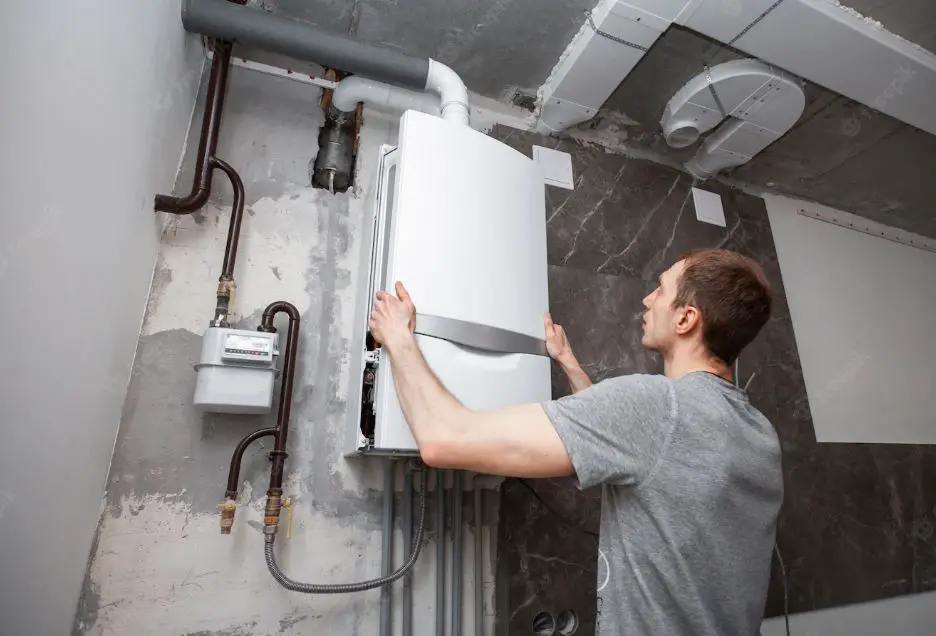
Condensing Boiler vs. Combi
Combi is a type of condensing boiler, so there is no huge difference between both, only that Combi is a type of boiler ideal for tiny houses or facilities.
Condensing Boiler vs. Conventional/Traditional
You need to know that a condensing boiler differs from a conventional boiler.
A typical traditional boiler has a distinct way of producing hot water compared to a condensing system.
While a traditional/ conventional boiler expels water vapor and some heat is wasted, a condensing boiler recoups the heat from the water vapor. It brings it back into the boiler for further use.
Condensing Boiler vs. Heat Pump
A condensing boiler generates high heat rapidly within a short period to produce hot water.
On the other hand, a heat pump gradually generates heat and takes time to get water to a desirable temperature.
Condensing Boiler vs. Tankless Water Heater
Condensing boilers share a lot of similarities with tankless water heaters. The significant difference is the heat management system.
While a tankless water heater loses heat, a condensing boiler reuses the heat that would have been lost to warm up fresh incoming cold water.
In simple terms, the condensing boiler is more efficient than the tankless water heater — it conserves energy while delivering optimum performance.
Are They Worth Buying Overall?
Overall, condensing boilers are worth buying. The environmental advantage is an excellent reason to choose it over other boilers that emit C02.
However, you may also consider installing a condensing boiler to save a few bucks on gas fees. Its efficient system makes it consume less energy.
Who Should Install a Condensing Boiler?
Due to governmental regulations, residents of regions in the UK and some parts of Europe must install condensing boilers to replace old faulty types or as first-time installations.
Suppose you live in an area without mandatory regulations for boilers, you may consider installing a condensing boiler if your home isn’t too big and you want to save on energy costs.
In addition, environment enthusiasts may find a condensing boiler an ideal home appliance.
The Three Best Condensing Boilers You May Buy
Rinnai i090SN Condensing Gas Boiler
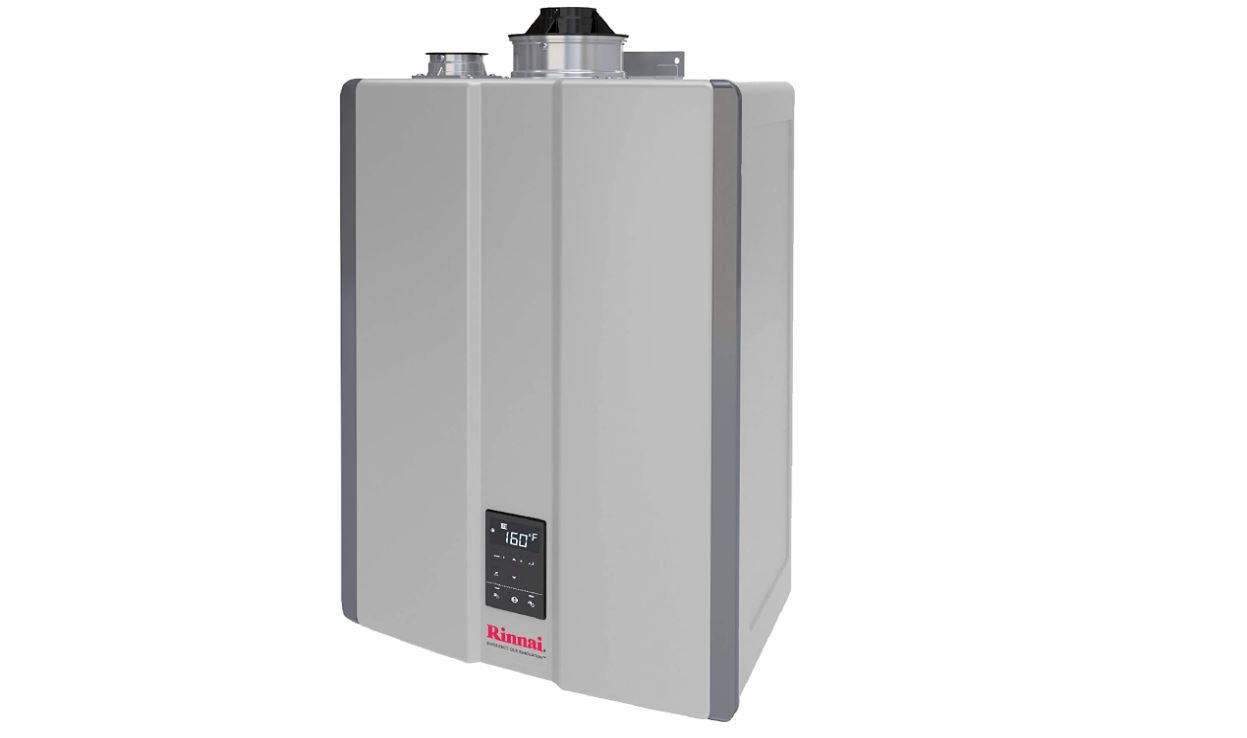
The Rinnai condensing boiler is powered by natural gas and designed for multipurpose use.
The thermostat and control pumps comprise the multi-zone system that allows you to heat the home and tap.
It has one of the highest AFUEs (Annual Fuel Utilization Efficiency) in the industry, making it a reliable boiler to use in the home.
Advantages
- Dual-purpose system
- Good user interface
- Compact design
Drawbacks
- Can only be installed by a specialized expert
Rinnai Score
Its dual-purpose system, coupled with the compact design, gets it a brilliant score of 82.
Overall Score: 82/100
Check Out More Reviews Here:
Aspen Firetube
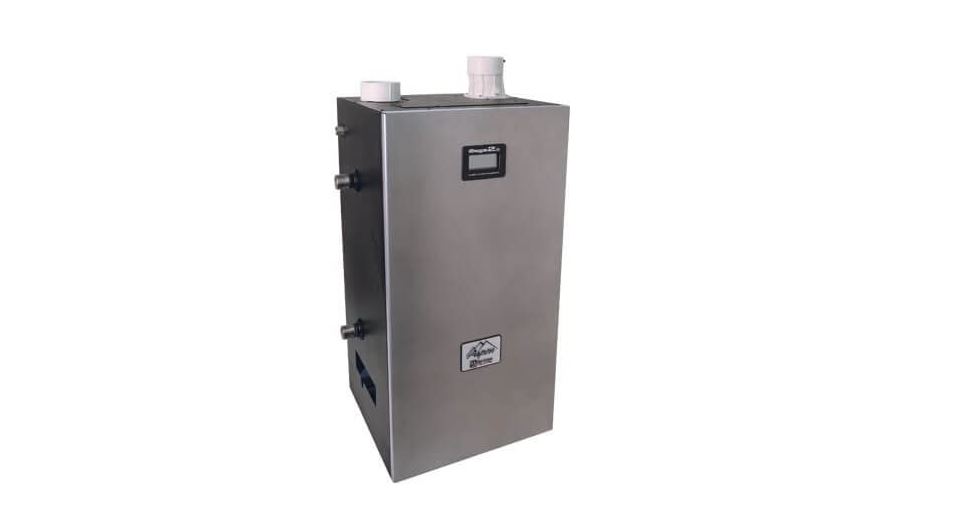
The Aspen Firetube is a condensing boiler with an excellent ergonomic design. It can be floor or wall-mounted, depending on the user’s choice.
It has a 95% efficiency rating with touchscreen control for easy use.
Advantages
- Built for commercial purposes
- Highly efficient and saves power
- Low-emission technology
Drawbacks
- May be too big for houses with little space
Aspen Score
Its efficiency and high water flow get it an excellent 89%
Overall Score: 89/100
Check Out More Reviews Here:
Takagi T-H3M-DV-N Condensing Direct
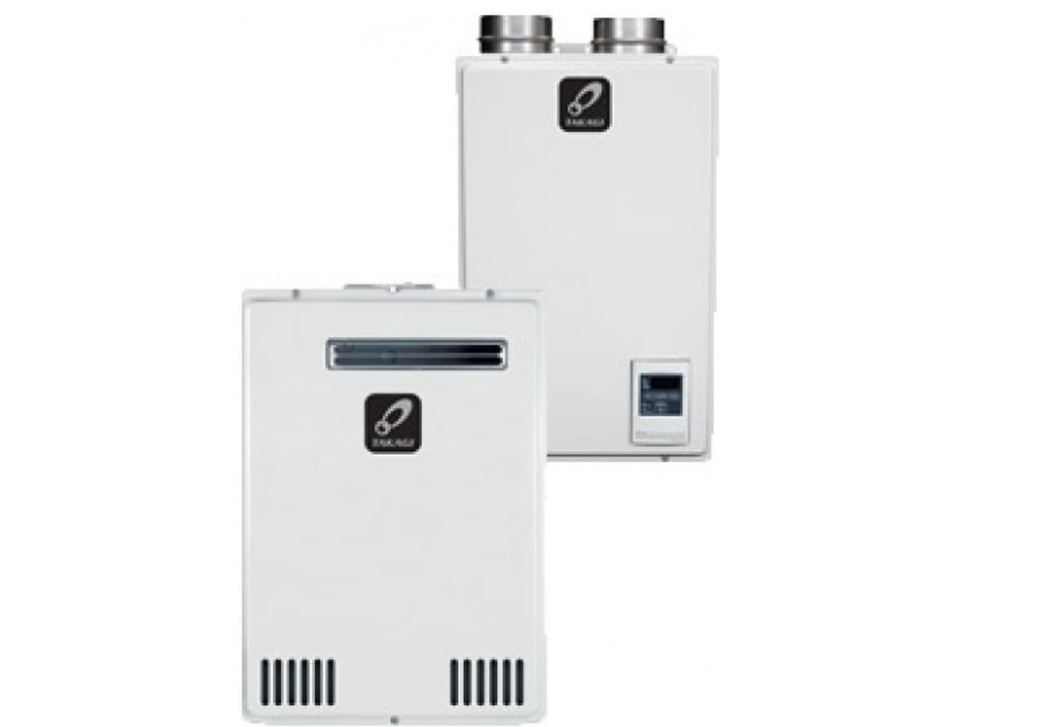
Also known as a condensing tankless heater, this highly efficient Boiler is suitable for residential use.
Providing about 6.6 gallons of water per minute, it comes with recirculation systems and excellent hydronic heating systems.
Advantages
- It can be used with storage tanks
- Solid and long-lasting pipes
Drawbacks
- It can only serve two rooms conveniently
Takagi Score
Due to the durability of the pipes and high efficiency, it gets a laudable score of 82.
Overall Score: 82/100
Check Out More Reviews Here:
Condensing Boiler FAQs
What temperature should a condensing boiler run at?
For best effectiveness, a condensing boiler should be between 60 °C to 65 °C. Ensure you heat it no lower than this since doing so could make you more susceptible to certain illnesses.
How long do condensing boilers last?
Condensing boilers tend to have a service life of 15 years; however, they can last 20 years with proper maintenance.
How do you run a condensing boiler efficiently?
Reduce the flow temperature to maximize the efficiency of your residential condensing boiler.
Turning down the flow temperature is a simple way to increase the efficiency of your household condensing boiler.
This does not imply that it uses less energy to heat the property overall but rather that it can use less gas to produce the same amount of energy.
Does a condensing boiler have a water tank?
No, a condensing boiler doesn’t have a water tank. Instead, it draws water directly and generates enough heat to boil it.
Do condensing boilers need a drain?
Yes, wastewater is removed from the boiler using a condensate pipe. A condensate pipe that leads to a drain is necessary for all modern condensing boilers.
Do you need a cold water tank with a condensing boiler?
No, you don’t need a cold water tank for a condensing boiler. The boiler draws water from the main supply to which it is connected.
How much water should come out of a condensing boiler?
A condensing boiler should produce about two liters of water every hour. While this is an ideal figure, some water heaters may have more or less.
What volume of water can a boiler produce per day?
A condensate or condensing boiler may produce approximately 24 liters of hot water daily if used for 12 hours. It’s imperative to remember that hot water is not always needed.
Hence, calculating the volume of hot water a condensing boiler can produce may be slightly tricky.
However, calculating how much it produces every hour gives us insight into how much can be made daily.
Are condensing boiler fumes harmful?
Since condensing boilers operate cleanly and emit less dangerous gases than traditional boilers, the gases you see are highly unlikely to be carbon monoxide.
The fumes you may notice are harmless.
How much condensate does a boiler produce per hour?
At an average temperature of 30 to 40 °C, a condensing boiler will produce roughly 2 liters of condensate every hour.
This condensate will exit your condensate line, wastewater outlet, or drain.
Final Thoughts
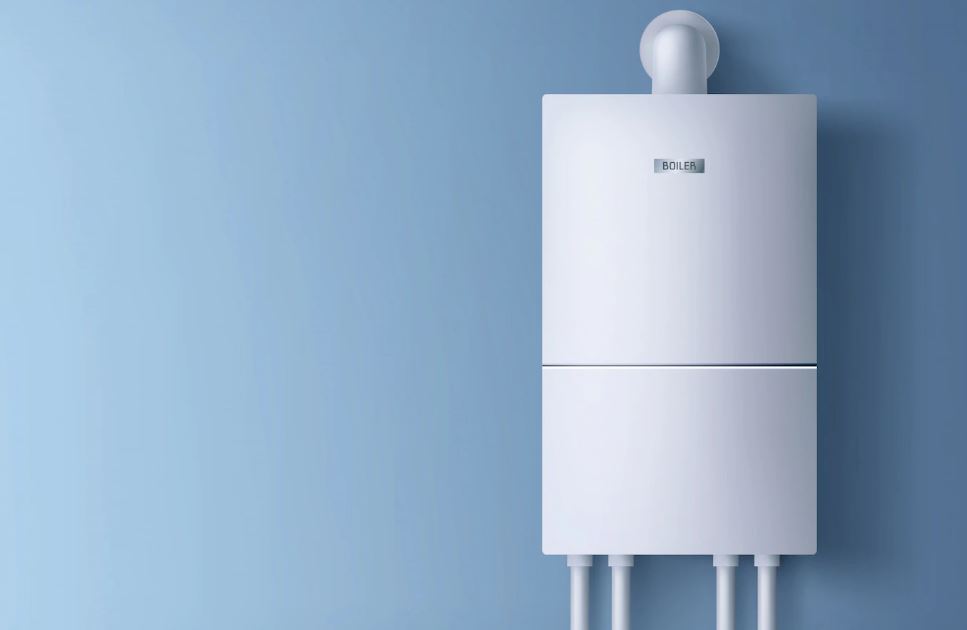
Condensing boilers have become the industry standard and have been mandated as a replacement option in many countries.
Nonetheless, it has several drawbacks.
This guide has seen its high installation and maintenance costs as the major disadvantages.
By extension, heating delays, inability to work effectively with numerous bathrooms, and regular maintenance show condensing boilers are not flawless in their design.
With this information, think carefully about your needs and compare condensing boilers’ drawbacks before installing them.
However, if you reside in a region where condensing boilers are mandated, focus more on how you get the best from them. This video provides excellent insight into how to use a condensate efficiently.



